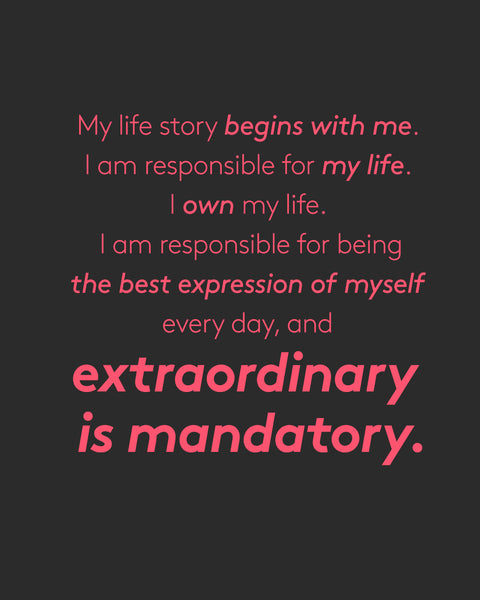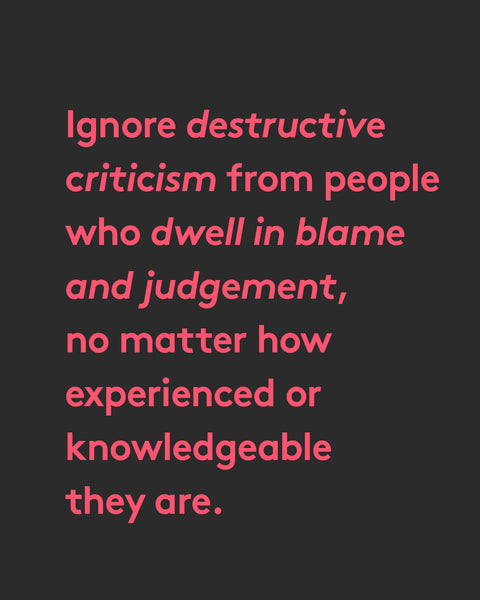Dr Margie McEwen BVSc DACVAA MANZCVS

Dr Margie McEwen is a board certified veteinary anesthesiologist based in Queensland, Australia & the Director of VetPrac offering hands-on and practical training and education for veterinarians.
What purchase of $100 or less has most positively impacted in your life? (Feel free to give specific brands/models).
All I can think of as I reminisce about the journey my life has taken me on is, “What a great question”! The truth is that there are probably many things that I have purchased over the course of my short life that have made a positive impact, however I am now casting my mind back to the one that “most positively impacted my life”. And now it has come to me: my therapeutic wheat pillow. Like many humans on this planet when I get stressed I manifest tension in my neck and trapezius muscles. So, I heat my wheat pillow in the microwave and wrap it behind and around my neck for that wonderful comfort sensation of relaxation and relief.
Most early mornings I meditate and write in my journal, and the wheat pillow is around my neck, or across my abdomen as I do this. It’s initiates relaxation in my body that then allows my mind to drift into meditation and reflection, and to be honest if facilitates my journey to better understand my spirit and mind, and tap into the creativity within.
Now my daughter looks for the “wheat pillow”, as a source of comfort, warmth, and relaxation. So I am passing the value and impact of my wheat pillow onto the next generation!
And so, while I took pause to really think and reflect about what purchase of $100 or less has significantly and positively impacted my life, it is my humble wheat pillow.
What is the funniest thing that has happened (to you or witnessed) in your job?
This one is easy! Go back in time just over 20 years to when I was an associate veterinarian working at Scone Veterinary Hospital (SVH) in the Hunter Valley (NSW). This is where I began my career in anaesthesia and it started with me learning to perform general anaesthesia on horses. I was also a mixed practitioner in this practice, and looking back it was a most excellent, challenging and wonderful job.
On the day I am remembering, for some reason I wasn’t “on the head”, the term for where the anaesthetist sits performing anaesthesia, and instead the head surgeon had asked me to scrub into a colic surgery as his assistant. In those days I had a lot of small animal GP surgery experience, so I was probably recruited because of these skills!
So picture this…
I was standing beside the surgeon, helping hold the bowel, when I realised that my scrub pants felt very loose, and were in fact starting to fall down my legs. “No worries” I thought, how could this possibly be a problem?... with an operating theatre busy and with a couple of people observing, a few students, and staff running the surgery table and of course the anaesthetist. And to make it worse, I’m fairly short, so I was standing on a box to put me at the right height to properly assist with the surgery. And then my scrub pants fell all the way down around my ankles, completely. And you know what happened next…the surgeon asked me to go around to the other side of the surgery table to hold the bowel from another angle so that he could get better visualisation. What followed had everyone in stitches, with me sliding off my perch, somehow maintaining sterility at that point, and in full view of everyone in theatre, commenced waddling to the other side of the surgery table, because my ankles were effectively tied together with my scrub pants! Of course I was blushing puce, and loudly whispering to the vet nurse (also my friend), about my strange predicament. The whole place was falling apart laughing, I kept blushing, and my friend opened up the back of my gown and discretely pulled up my scrub pants, so I kept some shred of dignity throughout the whole calamity. Then we changed my gown and gloves, and I was on my way again with a firm knot in my scrub pants, and I don’t think I delayed the surgery too much!
Favourite guilty pleasure after a stressful day at work?
This is a good one. There are two. Sharing a glass of wine or a vodka tonic with my wonderful husband as we chat about the day in the melee of getting dinner organised and the family fed. And the other one is spending time with my family watching telly after dinner, with a hot cup of tea and a few squares of chocolate.

How has a failure (or apparent failure) set you up for later success? Do you have a “favourite failure” of yours?
We have all had failures, if we are really honest with ourselves and all those around us. Probably my most significant personal failure was not passing the veterinary anaesthesia boards (Diplomate of the American College of Veterinary Anesthesia & Analgesia DACVAA) the first time through. I did my residency training program in the USA, at Cornell University, and I sat boards for the first time in May 2001, not long before the twin towers were destroyed in Manhattan, which is 19 years ago today. Along with all my friends and colleagues who have ever taken the DACVAA exams, I spent over 3 months studying for it, and probably 2-3 years on and off prior to that constantly learning and referencing the literature. If there is one thing to know about me when I take something on, it’s that I am dedicated and committed. It was devastating to open my exam results envelope to find that I had only passed half of the exam, and the section I didn’t pass, I failed by 0.5%. Nearly twenty years ago there was no recourse other than to re-sit that section, one year later. So I did. But it wasn’t that easy, I went through several emotional layers to get to the point where I said to myself, “well if you want to be board certified in veterinary anaesthesia, you have to do half the exam again”.
That process looked like this: First I was blown away, literally gutted, that I could fail, which is very egotistical indeed, as many intelligent and talented anesthesiologists have failed this exam. I have years of reflection under my belt which makes this easy to write today. Then I was in denial for a bit, and then angry and noisy (and I wrote a letter of course), and then finally I looked at myself and realised the failure didn’t happen to me, it happened because of me. I reflected that I wasn’t well prepared for that section of the exam, and I knew it. While I knew my stuff, my knowledge wasn’t detailed or specific enough for the multiple choice section. So through reflection, I tapped into my resilience, and I did that section of the exam the next year, and passed with flying colours.
This experience was initially very humbling. One is never above or below anything in this life, we just are. We should simply allow ourselves to “be” and accept our failures graciously as incredible opportunities to learn. In my heart I know that I didn’t perform well the first time through and that was on me. My friends knew too, and one of them helped me to realise that if I wanted to be a DACVAA, I would have to do the exam again. So I stopped blaming everyone and everything around me for the failure that was mine, I rose, I worked hard, and I was a better vet and anaesthetist for it.
If you have a billboard for all other healthcare professionals out there with any message, what would it say? (It can be someone else’s quote: Are there any quotes you think of often or live your life by?)
Create the Space. Be the Place.

What is an unusual habit or (conventionally considered to be) absurd thing that you do/love (may or may not be related to your discipline/practice)?
Learning to play Bridge with my Dad on Zoom, one or two afternoons a week, with my son and my husband as well.
In the last 5 years, what new belief, behaviour or habit that has most improved your life (may or may not be related to your discipline/practice)?
Recognising that my life story begins with me. I am responsible for my life. I own my life. I am responsible for being the best expression of myself every day, and extraordinary is mandatory.

What advice would you give to a smart, driven student? What advice should they ignore?
Advice: Learn it to the best of your ability, and embrace lifelong learning. Practice with calm confidence. Own it, no excuses, just own it.
Ignore: Destructive criticism from people who dwell in blame and judgement, no matter how experienced or knowledgeable they are.
What bad recommendations you hear in your area of expertise that you would want to correct the most?
Not sure if this is really a bad recommendation, however it really bugs me when, in response to a question from a learner, an educator says: “You should know that. I taught you that.” This is an expression of huge disconnect because reading from a textbook, or listening to lectures, is eons away from what it might look like in the clinical and practical setting. And I am a firm believer that it is my job as a clinical educator, to guide learners across that gap. We’re their guides, they follow our example, and putting someone down who is well read, has worked hard, and simply asks a question out of genuine curiosity and the desire to learn and be better, is the antithesis of the mission of teaching and learning. Learners deserve to be guided across the gap between learning and doing. It is a travesty to do otherwise.
The other piece here lies in “I taught you that”. What an egotistical statement on behalf of the educator! You mean to tell me, that one tiny factoid taught once at some point in the past, should be immediately and perfectly recalled in a different context, like the clinical setting? Ridiculous! Teaching and learning is a two-way street. Teachers are learners and learners are teachers.

In the last 5 years, what have you become better at saying "no" to? What new realizations helped?
My natural way of being is to help when I am asked to do so. However we all know that if you do this and keep doing this, and you’re a willing worker, you end up depleted with no space left for yourself. So I have become better to saying “no” to doing things to help people that do not also support who I am. I am focusing on positive drivers for me and my family in my life, rather than spreading myself so thinly that I end up being a pruned out shell at the end of the day.
When you feel overwhelmed or lost focus temporarily, what do you do? (What questions do you ask yourself to get back on track?)
First I breathe, I go to a quiet space and breathe. I then acknowledge the deadlines and pressures of whatever it is that is making me feel overwhelmed, and instead of resisting, I focus on breathing, understanding and appreciating that I am OK, and I am doing the best with what I have, every single day.
What is your best or your favourite achievement in your career so far?
Sorry, not career: my babies, my beautiful children. My daughter Erin 17yrs and my son James 15yrs.
_____
Dr Margie McEwen BVSc DACVAA MANZCVS
https://www.vetprac.com.au/
Youtube
Facebook
After graduating from the University of Sydney, Margie worked in general practice. While at Scone Veterinary Hospital in NSW and performing mixed practice duties as well as horse and small anaesthesia on a routine basis, Margie became fascinated with veterinary anaesthesia and analgesia. In 1997 she was awarded membership of ANZCVS, and in 2000 completed an anaesthesia residency at Cornell in New York. Margie became a Diplomate of the American College of Veterinary Anesthesia and Analgesia in 2002.
Margie worked at Washington State University (WSU) College of Veterinary Medicine, as an assistant professor for six years. During this time she discovered her passion for teaching and learning, and her interest in communication education began to grow and develop. She then went to work as a clinical anesthesiologist at Tufts University, Cummings School of Veterinary Medicine, in Massachusetts. In 2010, Margie moved back to Australia and worked for the University of Adelaide as a senior lecturer in veterinary anaesthesia where she applied her internationally developed knowledge and experience in teaching, learning and communications training.
In 2014 Margie moved to Darwin with her family for fun and adventure. She worked in a local general practice, and as a locum specialist anaesthetist for the University of Queensland, in Gatton. In February 2015 she commenced her role as a senior lecturer and team lead for the UQ Veterinary Anaesthesia and Analgesia Department. During this time she managed clinical work as an anesthesiologist and department head, alongside student teaching and learning responsibilities. She teaches into the Bachelor of Veterinary Science and Bachelor of Veterinary Technology programs. And routinely emphasizes hands on clinical skills while teaching in the veterinary hospital at UQ Vets in Gatton.
Margie’s teaching and learning philosophy aligns perfectly with VetPrac. It incorporates the scholarship of teaching and learning, accommodates different learning styles, and at the same time ensures the focus is always on the participant. She has been recognized and awarded by students and colleagues, alike, and has received accolades for her passion and innovation in education and understanding skill development methods.
Margie’s experience, expertise and passion for education and communication, has opened the door to incredible opportunities with VetPrac. Becoming part of the VetPrac team is the most natural and exciting next step for Margie in her career, adding to Ilana’s amazing and inspirational work.
“Tell me and I forget, Teach me and I remember, Involve me and I learn.” ~ Benjamin Franklin








Leave a comment